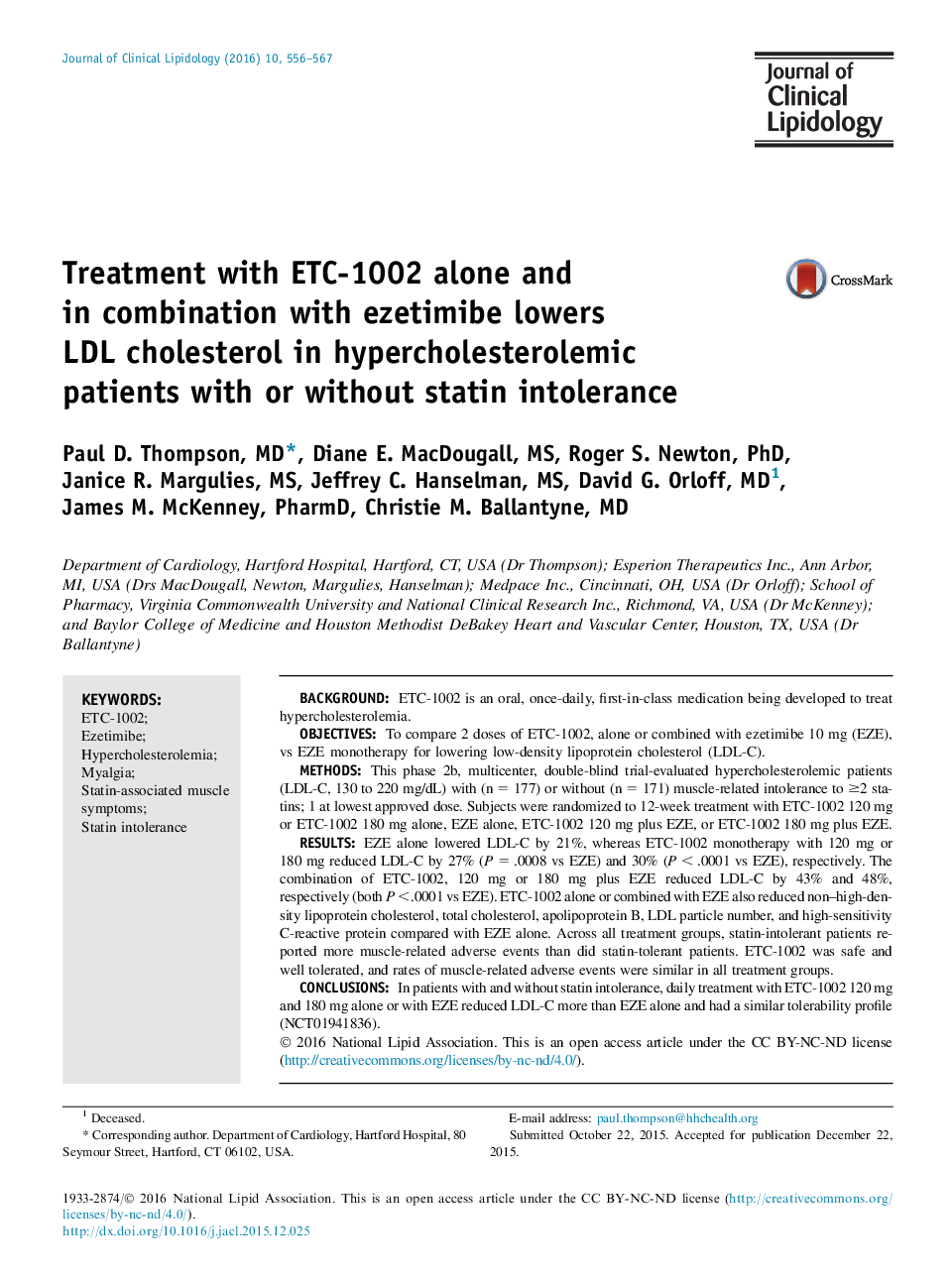| Article ID | Journal | Published Year | Pages | File Type |
|---|---|---|---|---|
| 5985309 | Journal of Clinical Lipidology | 2016 | 12 Pages |
â¢ETC-1002, alone and combined with ezetimibe, was studied for cholesterol reduction.â¢ETC-1002 monotherapy reduced LDL-C up to 30% and combination therapy up to 48%.â¢ETC-1002 reduced LDL-C similarly in statin-intolerant and statin-tolerant patients.â¢ETC-1002 reduced LDL-C, non-HDL-C, apolipoprotein B, and CRP more than ezetimibe.â¢Rates of muscle-related adverse events were similar in all treatment groups.
BackgroundETC-1002 is an oral, once-daily, first-in-class medication being developed to treat hypercholesterolemia.ObjectivesTo compare 2 doses of ETC-1002, alone or combined with ezetimibe 10 mg (EZE), vs EZE monotherapy for lowering low-density lipoprotein cholesterol (LDL-C).MethodsThis phase 2b, multicenter, double-blind trial-evaluated hypercholesterolemic patients (LDL-C, 130 to 220 mg/dL) with (n = 177) or without (n = 171) muscle-related intolerance to â¥2 statins; 1 at lowest approved dose. Subjects were randomized to 12-week treatment with ETC-1002 120 mg or ETC-1002 180 mg alone, EZE alone, ETC-1002 120 mg plus EZE, or ETC-1002 180 mg plus EZE.ResultsEZE alone lowered LDL-C by 21%, whereas ETC-1002 monotherapy with 120 mg or 180 mg reduced LDL-C by 27% (P = .0008 vs EZE) and 30% (P < .0001 vs EZE), respectively. The combination of ETC-1002, 120 mg or 180 mg plus EZE reduced LDL-C by 43% and 48%, respectively (both P < .0001 vs EZE). ETC-1002 alone or combined with EZE also reduced non-high-density lipoprotein cholesterol, total cholesterol, apolipoprotein B, LDL particle number, and high-sensitivity C-reactive protein compared with EZE alone. Across all treatment groups, statin-intolerant patients reported more muscle-related adverse events than did statin-tolerant patients. ETC-1002 was safe and well tolerated, and rates of muscle-related adverse events were similar in all treatment groups.ConclusionsIn patients with and without statin intolerance, daily treatment with ETC-1002 120 mg and 180 mg alone or with EZE reduced LDL-C more than EZE alone and had a similar tolerability profile (NCT01941836).
